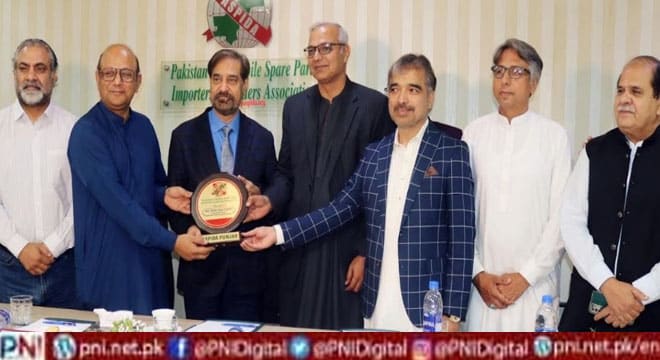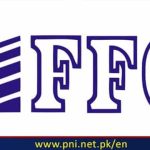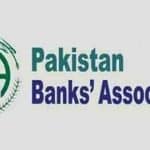Lahore, May 06 (Online): The Pakistan Industrial and Traders Associations Front (PIAF) Chairman FahimurRahmanSehgal along with FPCCI President Irfan Iqbal Sheikh, PIAF SVC Nasrullah Mughal, VC Tahir Manzoor Chaudhary and other EC members visited the office of the Pakistan Automobile Spare Parts Importers and Dealers Associations (PASPIDA)where they held a meeting with its officials including the Pattern Chief AbidHameed and observed that PIAF and PASPIDA has a close liaison for the last two decades and both the associations will continue to raise their voice to redress the issues of traders.
PIAF Chairman FahimurRahmanSehgal, addressing the meeting, said that traders are the backbone of the economy but unfortunately the economy is presently stagnating due to due to the bad policies of the government. Due to political instability, there is no direction of the government which is a cause of grave concern for the traders. He asked the government that the guggestions from the business community should be included in the next budget to achieve the high economic target and growth. The trade and industry is already under the severe burden of taxes, so they should not be taxed more in the upcoming budget, rather they should be given relief.
On this occasion, FPCCI President Irfan Iqbal Sheikh said that the country is currently facing many challenges, including current account deficit,
while exports have not been increased significantly despite the devaluation of the currency. The reason for this is that unless the policies are business-friendly, the country’s exports will not be able to flourish. There are a lot of taxes at the provincial and federal levels.
There is no expansion in the industry, which is an alarm bell. So, efforts should be made to promote the industry in the upcoming budget.
Former Chairman Muhammad Ali Mian and Mian Abu Zar Shad said that that reports around International Monetary Fund (IMF) are not positive, denting investor sentiment. They added volatility would remain until IMF program is revived and inflows are materialized. They said the delay in IMF funding is creating uncertainty in currency market and added that a number of payments related to imports have been made, leading to pressure on the rupee, as the move to a market-based currency exchange rate regime is one of a list of actions the IMF wants Pakistan to complete to clear its 9th review.
The speakers said that government has already taken most of the other prior actions, which include hikes in fuel and energy tariffs, the imposition of new taxation measures, and withdrawal of subsidies in export and power sectors.
Faheem Saigol said that the Pakistan’s economy can grow sustainably only if the country introduces productivity-enhancing reforms that facilitate a better allocation of resources into more dynamic activities, and productive uses. He stated that the country’s inability to allocate all its resources to the most productive uses has stunted economic growth. It presents evidence of systematic productivity stagnation across firms and farms. In manufacturing and services, most of the productivity stagnation is related to firms losing efficiency over time.
The government needs reminding that remittance inflows were 29.4 billion dollars last fiscal year and this large inflow was also due to the fact that the interbank and open market rates did not diverge significantly during the previous tenures.
Thus the current untenable situation is due to a perceived policy of exchange rate manipulation and cannot be attributed entirely to the warnings of impending default or criticism of the handling of the economy.
Follow the PNI Facebook page for the latest news and updates.









